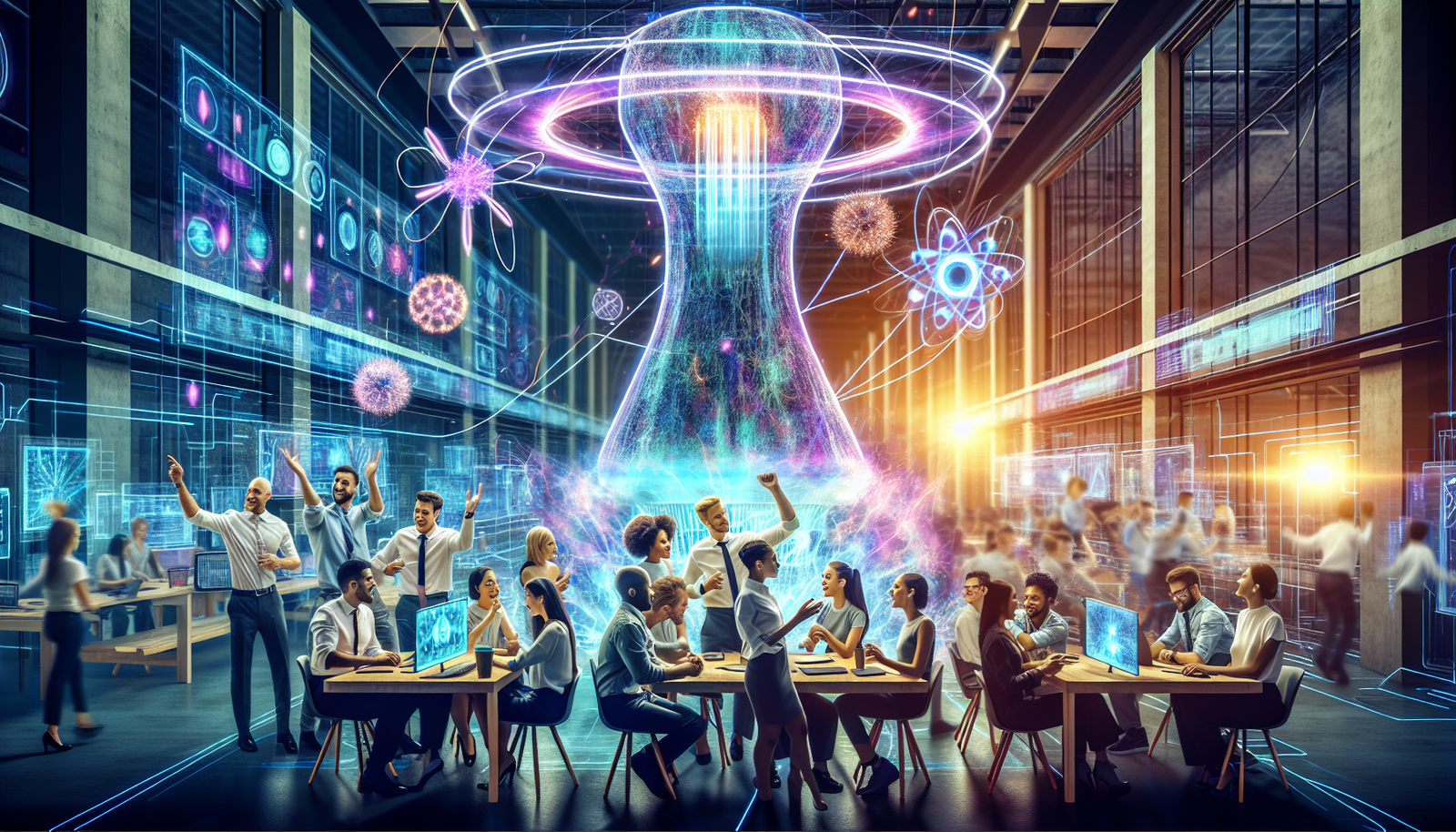The dizzying rise of artificial intelligence requires abundant and reliable energy. Technology multinationals, aware of their increasing dependence, are embracing nuclear energy. This strategic shift responds to growing needs for _sustainable energy resources_. Data centers, true sanctuaries of computation, demand optimal energy infrastructures. Nuclear energy offers a _revolutionary solution_ to this issue, with promises of profitability and efficiency. Industry leaders, such as Microsoft and Google, are investing heavily in nuclear technologies. This movement marks a decisive turning point in the _global energy balance_, with potentially profound repercussions on the environment and the economy.
An exponential energy demand
Tech giants are facing an exponential growth in energy demand, particularly for artificial intelligence (AI) applications. The power needed to fuel these systems, often used in vast data centers, is increasing significantly. This intensification of needs is driving companies to seek reliable and sustainable energy sources. The transition to nuclear energy thus appears as a strategic option.
The ambitions of GAFAM and nuclear energy
Companies such as Microsoft and Google are investing heavily in nuclear energy to meet their growing needs. The GAFAM (Google, Apple, Facebook, Amazon, Microsoft) are increasingly turning to this energy to ensure their development. This reliance on nuclear power is explained by its ability to provide a constant and large quantity of energy, essential for high-volume operations associated with AI.
The concrete projects of companies
Microsoft has reactivated the Three Mile Island nuclear plant to support the energy needs of its data centers, particularly those dedicated to generative AI. This choice reflects a desire to limit carbon footprint while ensuring the availability of power. Meanwhile, Google is investing in mini-nuclear reactors to ensure the power supply for its data centers. These projects aim to embed sustainability into their energy supply chain.
The advantages of nuclear energy
Nuclear offers several notable advantages. First, it allows for a significant reduction in greenhouse gas emissions compared to fossil fuel energy sources. Moreover, nuclear power plants can operate continuously, ensuring the necessary stability for technological operations. This factor is essential for companies whose productivity depends on the constant power supply to servers.
The synergy between AI and nuclear energy
Artificial intelligence itself plays a role in this energy transition. Through sophisticated algorithms, AI helps optimize the operations of nuclear reactors and the management of energy production. This interaction can make nuclear systems more efficient and further reduce operating costs. Tech companies realize that collaboration with nuclear energy could propel their technological ambitions beyond a mere energy objective.
Massive investments and future prospects
The investments made by tech giants in nuclear energy are colossal. For example, Microsoft’s commitment could exceed 100 billion dollars for upgrading its infrastructure. This trend embodies a long-term vision where nuclear and AI become the pillars of a sustainable and productive ecosystem.
A changing paradigm
The shift towards nuclear energy by tech companies raises questions about the future of renewable energy sources. As the need for energy grows, a balance must be found among different types of energy production. Future analyses will need to focus on how nuclear energy can coexist effectively with renewable sources like solar or wind.
Safety and acceptance of nuclear energy
The perception of nuclear energy remains mixed, influenced by past events. Companies must not only justify their choices economically but also work towards social acceptance. Public awareness of technological innovations and advancements in nuclear safety is essential to encourage a smoother transition and accept this energy as a viable solution.
Frequently Asked Questions about Nuclear Energy and Tech Giants
Why do tech giants choose nuclear energy to power their data centers?
Tech giants like Microsoft and Google turn to nuclear energy because of its ability to provide a reliable and stable energy source necessary to power their data centers, which consume increasing amounts of energy with the development of artificial intelligence.
What are the advantages of nuclear energy for artificial intelligence?
Nuclear energy meets the growing energy demand of artificial intelligence applications while supporting the carbon neutrality goals of tech companies.
How does nuclear energy contribute to achieving sustainability goals?
By using nuclear energy, companies can reduce their carbon footprint and minimize their dependence on fossil fuels, thus contributing to more sustainable and eco-friendly energy solutions.
Are mini-nuclear reactors a viable solution for tech?
Yes, mini-nuclear reactors offer a flexible alternative for tech companies looking to secure a stable and clean energy supply while reducing operating costs.
What are the concerns related to using nuclear energy to power AI?
Concerns include safety risks associated with nuclear plants, as well as issues related to nuclear waste and the social perception of nuclear energy.
How does the expansion of AI influence the demand for nuclear energy?
With the increasing energy needs resulting from the expansion of AI, tech companies see nuclear energy as a solution to power their infrastructures while supporting their rapid growth.
Are investments in nuclear energy profitable for tech companies?
Yes, investing in nuclear energy can be very profitable in the long term, as it allows companies to secure a low-cost energy source and reduce fluctuations in fossil fuel energy prices.
What are the implications of Google’s agreement regarding nuclear energy?
Google’s agreement to utilize nuclear energy reinforces its commitment to clean energy and supports its growing energy needs for data centers, thereby fostering sustainable development.






